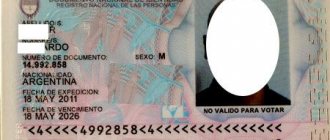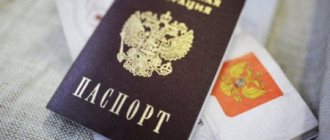What are the benefits of Chinese citizenship?
China is a huge country with the largest population, as well as the first place in terms of gross domestic product based on purchasing power parity. This characteristic makes us think about changing the place of residence of citizens from developing countries. In addition, China is located close to Russia and is one of the main trading partners. And, these are not the only advantages of obtaining citizenship in China. Let us describe them in more detail; they directly or indirectly affect the lives of newly minted residents:
- Resident's right. After obtaining citizenship in China, a Russian can count on social preferences, tax benefits, protection and freedom in Chinese society, freely move around the country and administrative centers, and have the right to vote.
- Economic dominance. The vastness of China's economy is an authority in the world in numerous industries, the first place in coal and gold mining, in the production of cement and building materials, and the largest automaker. The Chinese yuan is included in the list of world reserve currencies along with the dollar, euro, pound sterling, Swiss franc and Japanese yen. Therefore, moving and obtaining Chinese citizenship will bring the new citizen closer to life in a powerful country.
- Urbanization. In China, numerous facilities, transport lines, and skyscrapers have been built and continue to be built, which is transforming provincial areas into cities with better social conditions. Those who love life in big cities will appreciate this fact after moving and obtaining citizenship.
- Difference in minimum wage. The minimum wage in China has been constantly increasing in recent years and is currently 2,480 yuan, or $350 at the current exchange rate. The amount varies by region; the larger the city, the higher the minimum wage. Here, it is worth noting that since last year, income tax is not withheld from salaries up to 5,000 yuan ($705).
- Knowledge of Chinese. Before you receive citizenship and the coveted passport, you will have to persistently study Chinese. But in general, this is a huge plus, since it is increasingly used around the world. It is used in negotiations, in business, in the tourism sector, logistics, and so on, so you can hope to work in international companies with an above-average salary.
- Freedom to travel. For Asian lovers, obtaining new citizenship and living in China will save time when flying to tropical resorts: Hainan, Boracay, Bali, Phuket, Langkawi, Goa, Sri Lanka. In addition, the trip will cost much less than from Russia or Ukraine. Even if you need to get a visa, it is faster to obtain one in China.
- Cultural enrichment. Living in China will diversify the culture of a European, enrich it spiritually and show how diverse the East is, where a unique atmosphere and unique history are hidden. Celebrating the New Year in February, when the Celestial Empire closes for a whole month, will certainly bring color to life.
Video: how to obtain Chinese citizenship
As you can see, obtaining Chinese citizenship is a troublesome process and requires a lot of effort. Before making this difficult decision, weigh the pros and cons and soberly analyze whether Chinese citizenship is really what you need? And, if you have already decided for yourself that you really want this - act, believe in yourself and everything will definitely work out!
- Author: Anastasia Kravchenko
My name is Anastasia. There are many hobbies, it’s impossible to say everything at once. I have been interested in the topic of immigration for a long time, I hope that my knowledge will help other people achieve their plans. I consider writing articles more of a hobby than a form of income. Rate this article:
- 5
- 4
- 3
- 2
- 1
(4 votes, average: 4 out of 5)
Share with your friends!
Is dual citizenship possible between Russia and China?

According to Article 62 of the Constitution of the Russian Federation, Russians have the right to purchase a second passport. And among compatriots the issue of dual citizenship is being considered quite closely. But it’s worth immediately disappointing - the Government of the East Asian state does not give such rights to its citizens, including foreigners. Most likely due to the fact that the Chinese population is fine, and they are not ready to share their capital, success, with residents of other countries. This rule is confirmed by the Nationality Law in China, which denies dual citizenship in any form. This means that when applying for citizenship, a foreigner must renounce his native one.
In what cases is dual citizenship possible?
In the Russian Federation, dual citizenship is completely legalized. If you think about it, dual citizenship implies that its bearer must pay taxes on one income to 2 treasuries, that is, in fact, in double amount. Realizing the absurdity of this situation, the Chinese government strictly denies the possibility of granting citizenship of its country as a second or dual one.
In this regard, a person applying for Chinese citizenship must renounce any other citizenship. If this is not done, then the next time you cross the border of the Celestial Empire, even an ethnic Chinese can very easily cease to be its citizen!
Ways to obtain Chinese citizenship for Russians in 2021
A successful move to China for permanent residence and obtaining citizenship largely depends on preparation and knowledge of immigration programs. In 2021 they look like this:
- Citizenship by birthright.
- Citizenship by descent.
- Citizenship by naturalization.
- Through family reunification.
- Through marriage.
- Obtaining political asylum.
- Citizenship when purchasing real estate.
- Entrepreneurship.
- Restoration of citizenship.
Citizenship by birth

When moving to another location, some couples consider birthright citizenship. According to China's immigration policy, a child can obtain local citizenship if the parents or one parent holds a Chinese passport. In the case of foreigners who live as temporary residents or permanent residents, different rules apply. A child born on the territory of the state from non-residents will be considered a citizen of the country where his parents are residents. Typically, they must apply for a birth certificate at the Russian Embassy located in the PRC.
Completely different conditions are prescribed in the law for children born to refugees or stateless people, that is, to persons without actual citizenship. A birth certificate is still issued for them with the status of a Chinese citizen.
Citizenship by descent

If in the United States, Canada and Latin America, children who were born in the clinics of these countries are granted citizenship upon reaching adulthood, then the situation with China is different. Only persons who have previously lost or were deprived of it for some reason can obtain Chinese citizenship by descent. Including if children were born in the PRC, but moved to live with their parents elsewhere, they will be able to return and obtain citizenship by origin.
The list of documentation for obtaining citizenship includes:
- Application according to the established form.
- Passport information.
- Autobiography (on request).
- Birth certificate.
- Other information on request.
Citizenship by naturalization
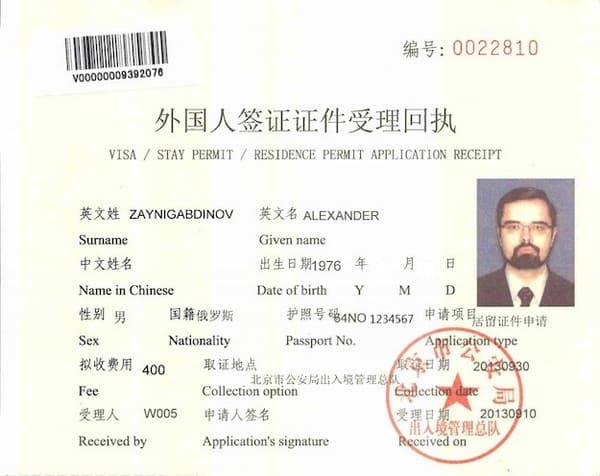
For foreigners, the naturalization process is most often suitable - it includes several stages. First you need to obtain a residence permit, then permanent residence status, and then apply for citizenship. It must be said that the naturalization process in China is very similar to European countries in terms of timing.
First of all, in order to move to China and obtain a residence permit, you will need reasons. The most common of them are: training, employment contract, marriage with a resident, starting a business, investing.
Obtaining a visa takes place in Russia, where you will have to submit a full package of requested documents and prove your solvency and law-abidingness. Further, upon arrival in China, the Immigration Department will issue an ID card in the category in which it is requested or there will be an insert in the passport. The residence permit will be in hand within one month, its cost is $95. Upon subsequent renewal they pay $15.
The residence permit must be renewed five times, after which an application for permanent residence must be submitted. Foreign spouses after 5 years of living in China can count on citizenship, other foreigners after 10 years.
Along with the application, a foreigner must submit the following copies and originals to the Chinese Citizenship Institute:
- Travel document (meaning international passport).
- Birth certificates.
- Evidence of long-term and legal stay in the country.
- Bank statement.
- Chinese language test results.
- Receipts for payment of state fees.
The cost for processing the application is 250 yuan or $35, an additional fee for obtaining a citizenship certificate is 200 yuan or $28, and you will also need to pay for translation of documentation.
Family reunification

The family reunification program is widely used, especially by Russian citizens who previously received citizenship in China. Since the Chinese take care of their parents and help them financially, this aspect is no exception in migration policy. Any foreigner living in China can transport not only his spouse and children, but also his parents.
Only the Government of the People's Republic of China puts forward several requirements for migrants of age: firstly, the age of the parents should not be less than 60 years; secondly, there must be evidence that there is no one to care for them in their homeland.
When contacting the Chinese Embassy or the Citizenship Institute, you must provide:
- Statement.
- An invitation from a close relative living in China.
- Sample photographs.
- Passport information.
- Information about place of residence in China.
- Financial certificates of the receiving party.
Obtaining citizenship through the family reunification program will cost 450 yuan or $63. Price may change.
Obtaining citizenship through marriage

Since China is considered a socialist republic, the state controls the public and personal lives of its citizens very carefully. This is evidenced by the “Law on Marriage,” which states: “Girls are allowed to marry upon reaching 20 years of age, and boys upon reaching 22 years of age.” It is also worth noting that the authorities are trying to suppress unofficial civil marriages, but in megacities this task is very difficult to cope with.
Mixed marriages are not as common in China as in most developed countries, but still a trend is emerging due to the large influx of students and expats from abroad. Most people come from Russia, the USA, the Philippines, and Europe. Marriage to a Chinese man simplifies the emigration process and shortens the time required to obtain citizenship.
After 5 years of marriage, a foreigner is allowed to apply for citizenship. In addition to the application, the applicant must provide the migration service with a complete package of documents, originals and copies:
- Passport.
- Birth certificate.
- Marriage certificate.
- Address certificate.
- Renunciation of current citizenship.
The request is processed for 15 days, then a positive or negative decision is provided; additional documents may be required.
Obtaining refugee status

Refugees from the neighboring countries of North Korea, India, Pakistan, the Philippines, Thailand, and Egypt are increasingly arriving in China, but the Chinese government is in no hurry to grant them citizenship. To take advantage of the political asylum program, you must prove those facts that comply with international law. These include unlawful actions against a person on the basis of race, religion, gender, unlawful political persecution, civil unrest or other.
Among Russians, this method of moving can be considered not relevant. If there are facts of violence in their country, then a Russian citizen will go to seek asylum in Europe rather than in China. Well, those who are considering “political asylum” formally will be disappointed - it is unlikely that they will be able to move in this way. The authorities will require detailed photos and videos, a court decision, or something else to analyze the chain of events that happened to you.
When purchasing real estate

Due to the fact that China is a socialist state, the regulations regarding real estate will be different. The issue of acquiring personal and commercial housing is regulated by the “Property Law” and the Constitution; they also state that all land in China is owned by the state and collectives, and that investors can expect to receive full land use rights only after 50-70 years of lease.
Previously, it was almost impossible for a foreigner to buy real estate, but in 2007 amendments were made that allowed non-residents to purchase housing and commercial real estate. To a greater extent, relaxations in legislation are associated with the influx of foreign labor, entrepreneurs and investors.
According to today's property law, a foreign person can buy housing by following the following procedure:
- you need to live in the country legally for one year;
- You can own only one property and for residential purposes;
- allowed to buy commercial real estate by registering a company;
- pay basic taxes and additional fees for non-residents on time.
As can be seen from the conditions, the purchase of real estate will not be the basis for obtaining a residence permit, but when considering an application for citizenship it will be one of the indicative factors in making a positive decision.
Citizenship for entrepreneurs

A passport of a citizen of the People's Republic of China is issued to successful entrepreneurs in a shorter time, but to obtain it today, you will have to find a free niche. As you know, China has long been a trading partner of Russia, and over the past ten years many Russian traders have moved to Chinese territory, most often organizing a logistics business. It was logistics that helped compatriots move to Beijing, Shanghai, Guangzhou, Urumqi and start small companies.
Today there is very high competition among small entrepreneurs, and accordingly, it is not easy to answer the question: What to do in China during the current period? Experienced entrepreneurs advise opening a business visa for 3 months, coming to China, studying the market and taxation, and then acting as best you can.
To obtain a residence permit, you will need a business permit. To receive it, you need:
- come up with a company name in Chinese;
- approve the list of partners;
- determine the management structure;
- prepare a business plan;
- notify at what address in China the activity is planned;
- prepare personal documents and financial certificates;
- It is mandatory to provide a certificate of no criminal record.
Reliable information and evidence of business experience will add more seriousness to the case, which subsequently guarantees permanent resident status.
The main legislative acts for regulating business by non-residents in China are:
- Law on enterprises with 100% foreign capital.
- Regulations on the registration of foreign representative offices in China.
- Law on joint cooperation of companies with Chinese and foreign capital.
Depending on the form of ownership, capital is provided - it can be either $20,000 or $140,000. The minimum number of employees is 5 people; when hiring expats, you must prove their need.
After 5-10 years of residence in China, an entrepreneur has the right to apply for citizenship for himself and his family. The case is considered by the Institute of Citizenship within 3-6 months. The passport is issued for minors for 5 years, for people from 16-25 years old for 10 years, for people from 26-45 years old for 20 years.
Restoration of citizenship
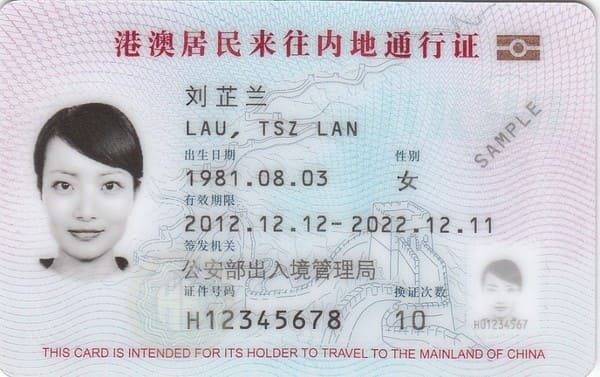
Based on the Citizenship Law of the People's Republic of China, Article 13 describes the possibility of regaining citizenship if it has been previously lost. China was once a poor country, and many residents moved to other places to work. Many still have relatives in their homeland with whom they constantly kept in touch or are still in touch. So, it is this connection with relatives that is the fundamental factor in the restoration of citizenship or repatriation.
The repatriate must fill out an application according to the sample, which indicates the first and last name, series, and passport number of the closest relative who will be the guarantor in China. If there are no immediate relatives, then you can find one of your colleagues, classmates, neighbors, distant relatives. Even if this was not possible, then you will have to prove your patriotism, pass the Chinese language with a good score and tell what benefits you will bring to society in the future.
For repatriation, it is equally important to show the following documents:
- letter or certificate of loss of citizenship;
- birth certificate;
- valid passport;
- information about the receiving party.
By complying with the requirements of the Public Security Administration at the place of residence or the Embassy/Consulate of the People's Republic of China, the repatriate will receive citizenship after 5 years. The average cost of processing an application is around 500 yuan or 70 dollars.
Grounds for obtaining citizenship
There is an opinion that not all nationalities can obtain Chinese citizenship, but Chinese legislation states that China is a multinational country, and everyone can apply for its citizenship, regardless of ethnicity.

A foreigner can fully fit into Chinese society; nationality is not a reason to deny citizenship
Right by birth and descent
According to Chinese law, citizenship is assigned to all children whose at least one parent is a citizen of the People's Republic of China, regardless of where they were born. Provided that the newborn does not acquire citizenship of another state. If a child is given citizenship of the country in which he was born, he is automatically deprived of the right to claim Chinese citizenship by descent.
If at the time of the child’s birth neither of the parents has citizenship at all, but lives in China, the child acquires the right to citizenship.
Family migration or "family reunification"
The Chinese are sensitive to the concept of family and family values, so people who have close relatives who are citizens of the Middle Kingdom have the right to obtain citizenship. These include parents (including adopted ones), grandparents on both sides, as well as children (including adopted ones).
Marriage
The most common option for obtaining Chinese citizenship is to legalize marriage with a Chinese citizen. In this case, you will not have to knock on the doors of various authorities in an attempt to collect the necessary documents, and the process itself in most cases takes much less time and effort.

Marriage to a Chinese citizen opens the door to citizenship
Investment
A person who has invested a fairly large amount in the Chinese economy has a good chance of receiving a positive response to his application for citizenship of the country. However, the amount must be truly impressive: at least 2 million US dollars. Intellectual contributions to the development of the country are also highly valued. Applications for citizenship from specialists who contribute to the development of China through their scientific or technical work are considered first.
Naturalization
Naturalization is the legal process of obtaining citizenship based on the voluntary desire of the applicant. Details depend on the specific legislation of a particular country. As a rule, in order to recognize naturalization, the state requires the fulfillment of a number of certain conditions (knowledge of the language, long-term residence in the country, availability of housing, etc.).
Naturalization is a very labor-intensive and lengthy process. The applicant must have lived in the PRC for at least five years, be over twenty and be able to support himself. A person who has close relatives in China and/or who permanently resides in the PRC can be naturalized. However, there is no certainty that if you fulfill these points you will achieve Chinese citizenship. The Chinese are very picky about applicants for citizenship of their country, and if there is even the slightest reason to refuse, they will definitely do it.
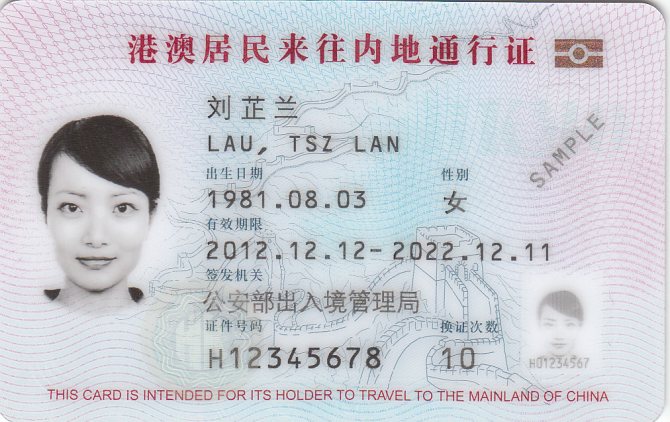
The naturalization path requires that before obtaining citizenship, a foreigner will live in China for several years under a temporary permit
Is it possible to buy Chinese citizenship?

Investors understand what it means to buy citizenship - it means investing a considerable amount in the Chinese economy, for which the Government will issue permanent residence, and after 5 years, citizenship. Only in this case we are talking about investments of 1-2 million dollars. With a minimum deposit of $500,000, there is a chance of obtaining citizenship in 10 years. The size of the amount in most countries plays a significant role when deciding on the citizenship of a foreign investor, and so it is here.
But it is worth paying tribute to the Chinese Government, which helps investors implement projects in various areas, simplifying conditions at the legislative level. According to the latest investment reports, money flows into China in a large flow, the bulk of it, which is 80%, is made up of money from wealthy Chinese who permanently reside abroad - for example, in Singapore, Malaysia, Australia, and the USA. At the same time, China also sends large sums to Europe, Latin America, and Southeast Asia. Russia and China actively cooperate on investment projects in the Far East region.
Thus, it is quite possible to buy Chinese citizenship for a certain amount.
Chinese Citizenship: Pros and Cons
This point cannot be ignored, given how radically opposing opinions exist on this matter. Therefore, before making a final decision, appreciate the advantages and disadvantages of the status of “citizen of the People's Republic of China”.
Legislation positions China as a multinational country
pros
- demand for qualified personnel;
- high standard of living, affordable prices;
- visa-free travel throughout the country;
- access to government positions;
- the right to participate in the electoral process;
- doing business on more favorable terms.
However, along with these important advantages, Chinese citizenship also has significant disadvantages. First of all, these are the difficulties that will arise when obtaining visas to other countries.
The list of states with which the Chinese authorities have established a visa-free regime is much shorter than the similar list in Russia. It is especially difficult for Chinese citizens to travel legally to Western countries. Thus, the Chinese have much fewer opportunities to travel abroad than the Russians. At the same time, the Chinese authorities may not even voice the reasons for refusing a visa: no, that’s all. But even if yes, you will have to try very hard first.
Everyone has the right to apply for Chinese citizenship, regardless of ethnicity.
To travel outside the country on a tourist visa, a Chinese citizen will also have to pay a deposit of 50 thousand yuan (more than 7.5 thousand dollars). In addition, many states are very reluctant to allow the Chinese into their territory. They say, if you let one in, he will quickly settle down and begin to “pull up” his many relatives.
For this reason, many of those who are focused on cooperation in the Middle Kingdom prefer to limit themselves to a work visa and work permit.

Who can be denied Chinese citizenship?

In China, the issue of granting citizenship is under the control of the Ministry of Public Security, under its subordination: the Department of Public Security in the regions, as well as Embassies and Consulates abroad. This structure carefully monitors the behavior of potential immigrants and reviews their applications with documents. In the absence of complete information, the authorized body must deny citizenship. According to the law, this is not the only reason for refusal; there are others:
- Perjury, forgery of certificates, misleading government officials.
- Having a criminal record, fines, and administrative penalties.
- Low solvency.
- Non-compliance with citizenship programs.
- Lack of interest in the culture, traditions, and laws of China.
- Lack of knowledge of Chinese even at a basic level.
- Presence of psychological disorders.
- A medical examination confirmed the presence of serious illnesses.
- Illegal presence in China.
- Inappropriate behavior during an interview.
Chinese citizenship and treatment of foreigners
The 1982 Constitution is the first constitution of the socialist period to use the term “citizenship”. Part one art. 33 of the 1982 Constitution of the People's Republic of China states: “All persons holding citizenship of the People's Republic of China are citizens of the People's Republic of China.”

At first glance, this formula is a typical “circle in definition” and does not carry any content, but this is not so, at least for the Chinese. The definition of Chinese citizenship, which has not appeared at the constitutional level for a long time, which therefore may seem to be the result of a long search by the legislator for the most successful solution to the problem, almost literally reproduces the norm of the 1946 Constitution, according to Art. 4 of which “persons who hold the citizenship of the Republic of China are citizens of the Republic of China.”
The procedure for acquiring, losing and regaining citizenship is regulated by the Citizenship Law of 1980.
Chinese citizens are considered
- persons both or one of whose parents are Chinese citizens and who were born in China;
- persons both or one of whose parents are Chinese citizens and who were born in another country; However, if the parents permanently reside outside China and the children acquired the citizenship of another country by birth (for example, in the case where the “soil principle” applies in the other country), then they do not acquire Chinese citizenship;
- persons born in China and whose parents, being stateless, permanently reside in China.
Foreign citizens and stateless persons can be admitted to Chinese citizenship. To do this, they must “show a willingness to comply with the Constitution and laws of the country” and meet one of the following conditions: have close relatives among Chinese citizens, permanently reside in the PRC, or have other appropriate grounds (the law does not specify which ones; apparently, this is at the discretion of administration).
Testing

The procedure for accepting citizenship involves passing tests for proficiency in the Chinese language and the ability to integrate into society.
When submitting an application for citizenship at the Migration Office, you must pass a language exam, which includes oral and written versions (both required), as well as an integration test.
It is enough to show basic knowledge of the language and the ability to write personal information in Chinese. When determining the level of integration, one should demonstrate knowledge of the basic traditions of the Chinese people, constitutional foundations, basic moments of history, be able to describe and explain the meaning of the country's state symbols, and also name the names of the state leaders of the PRC.
Methods of immigration to China from Russia
One of China's most pressing problems is overpopulation. Therefore, not all foreigners who decide to settle in the country receive approval for a residence permit. To obtain a residence permit there must be serious reasons.
Studies

Chinese educational institutions are highly rated in the world, so many come here to get higher education. True, it will be very difficult to enroll in a free department. To do this, you must be fluent in Chinese and have extensive knowledge. It is easier for foreigners to enroll in paid departments, especially since training is inexpensive. Find out which universities in China are considered the best.
To obtain a residence permit for the duration of your studies, you will need to conclude a contract with the university, as well as provide confirmation of the student’s solvency. After completing their studies, students can get a job in China, obtaining permanent residence, and subsequently citizenship.
Employment
Another basis for obtaining a residence permit in China is working in a national company. It doesn't matter whether it belongs to the state or a private person. A prerequisite is an officially concluded employment contract. Moreover, it must receive approval from the Ministry of Labor and Social Policy of the People's Republic of China. A residence permit is initially issued for a year; it can be extended until the employment contract expires. Working in China for 5 years gives the right to apply for a permanent residence permit. For university teachers and researchers with a doctorate, as well as for university rectors, this period is shorter - only 4 years.
Business immigration
One of the most popular ways for Russians to obtain a residence permit is to open a business in China. Entrepreneurs are issued visas to enter the country and organize their own business. They allow you to stay in the country for 3 months. Then, if the company has passed the verification, businessmen are issued an annual residence permit with the right to extension. After 5 years, it is allowed to obtain permanent residence.

Family reunification
The Family Reunification Immigration Program gives the right to obtain a residence permit to those who have close relatives living in China. You must receive an official invitation from them and prepare documents confirming the relationship. The residence permit is issued for 1 year, after which it can be extended. After 5 years you can apply for permanent residence, and after 10 - citizenship.
Marriage
By marrying a Chinese citizen, the foreign spouse receives a residence permit. A year later, permanent residence is issued, and after 5 years - citizenship. Children of spouses who have not reached the age of majority can also receive it.
Investment
Perhaps the easiest way to obtain a residence permit in China is for foreigners planning to invest in the national economy. They can immediately obtain permanent residence, and after 5 years - citizenship. True, the minimum investment amount is high - no less than 0.5 million dollars.
Grounds for deprivation of Chinese citizenship
You can lose Chinese citizenship in the following cases:
- Voluntarily, if the applicant submitted an application to the Ministry of Public Security, indicating a compelling reason: for example, close relatives living abroad.
- Automatically after the Chinese obtain citizenship of another country.
- Forcibly, if a naturalized person received a passport illegally (distortion of facts, forgery of documents, etc.).
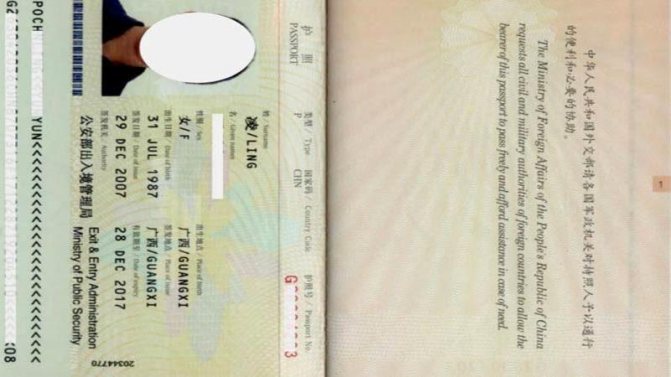
Procedure for obtaining citizenship
Before obtaining citizenship in China, a Russian citizen will have to live in this country for 10 years: 5 years with a temporary residence permit (RP) and another 5 with a permanent residence permit (PR). A foreigner applies for a residence permit in China, for which he is given 1-3 months from the moment of moving. However, as practice shows, a foreigner does not always receive a residence permit; some immigrants extend their work/student visa for 4 years in a row before receiving a new status of stay in the Middle Kingdom.
Types of border crossing permits and forms for obtaining them are posted on the website of the Chinese Embassy in the Russian Federation.
Registration of a residence permit
A residence permit is issued at the local department of the migration service. Along with the application form, a package of documents to be translated and notarized is submitted:
- passport of a citizen of the Russian Federation;
- international passport with a visa attached;
- 2 photographs 48x33 mm;
- certificate of no criminal record in Russia;
- a certificate of absence of dangerous infectious diseases issued by a Chinese medical institution;
- document confirming the availability of a place of permanent residence;
- confirmation of a permanent source of income: salary, bank account, sponsorship letter, etc.;
- for students: letter of acceptance, receipt of payment for the first year of study, documents on receipt of a scholarship/grant;
- for employees: invitation from the employer, work contract, work permit, confirmation of qualifications;
- for businessmen: constituent documents of the enterprise, invitation from a partner/colleagues;
- for relatives of Chinese: birth or marriage certificate, invitation, letter of guarantee;
- additionally: a confirmed diploma of education and a document confirming the award of a scientific degree, a certificate of completion of language courses/exams (HSK) and other papers at the discretion of the migration service;
- for renewal: certificate of no criminal record in China, certificate of payment of taxes;
- receipt of payment of the fee (500 yuan for initial application or 150 for renewal of status).
Reference . The validity period of the issued permit is from 3 months to 5 years with the possibility of extension. The processing time for the application is 15 working days.
Registration of a permanent residence permit
After 5 years of stay in China (or 1 year for spouses of local residents and 4 for managers of large enterprises), the immigrant applies for permanent residence. The procedure for obtaining resident status is similar to the previous stage, but the requirements become stricter, since the activities of the Department of Homeland Security are aimed at reducing the immigration flow.
Because of this, the list of documents is supplemented:
- the guarantee of a local resident who monitors the moral character of the foreigner;
- letters of recommendation from employers, business partners, etc.;
- confirmation of permanent residence in the state for 5 years;
- for entrepreneurs and investors: conclusion of the Ministry of Economy on the success of business/investment, certificates of absence of debts with budget payments;
- additional documents - at the discretion of the migration service;
- receipt of payment of the fee (1500 yuan).
Reference . Permanent residence is issued for 5-10 years with the possibility of extension. The application review period is up to 6 months (extension takes 15 working days).
Registration of citizenship
After 5 years of presidency in China, an immigrant has the right to apply for a PRC passport. The Migration Commission primarily evaluates the applicant's law-abiding nature, contribution to society and degree of integration, including knowledge of the Chinese language. Failure to meet the requirements or lack of documents will be grounds for refusal.

Basic package of papers for obtaining Chinese citizenship:
- application form;
- international passport;
- 4 photographs 48x33 mm;
- Russian passport and statement of renunciation of Russian citizenship after approval of the application;
- biometric data;
- medical certificate confirming the absence of dangerous diseases;
- certificate of no problems with the law;
- guarantee from a Chinese citizen;
- documents indicating integration into society: the presence of family ties, participation in public organizations, etc.;
- obligation not to participate in activities against the country (for example, terrorism);
- confirmation of financial security;
- confirmation of place of permanent residence;
- certificate of employment of the applicant;
- certificate of the applicant's marital status;
- document on education, award of an academic degree;
- certificate of completion of courses, passing HSK or other document confirming proficiency in Chinese.
A list of additional documents is announced by the immigration agent depending on the reason for moving to the country (for example, the statutory documents of a company). Consideration of the application takes up to six months.
Fees: 50 RMB upon application and another 200 RMB upon issuance of the certificate. In Hong Kong, the fee is HK$1,730 before and after the application is approved.
Attention ! In addition to the regular passport of a Chinese citizen in the PRC, there are passports for residents of the administrative regions of Macau and Hong Kong. The list of visa-free entry countries for holders of a simple Chinese passport (a sample is shown in the photo) is smaller than for citizens of Macau or Hong Kong.


